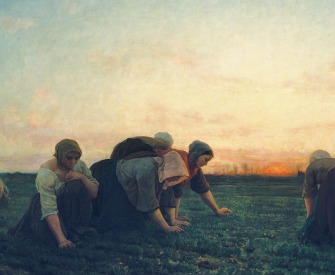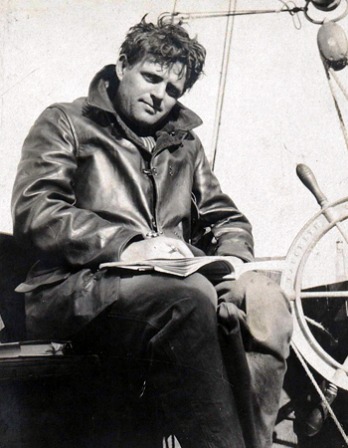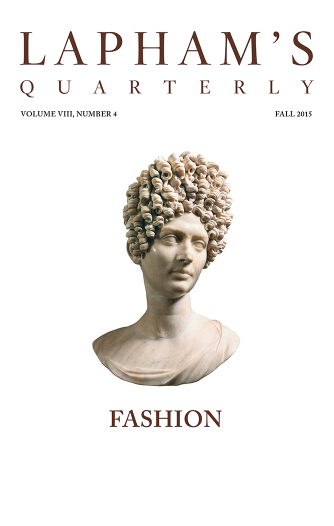Rhea, being forced by Kronos, bore
Most brilliant offspring to him: Hestia,
Demeter, golden-slippered Hera, strong
Hades, who has his home beneath the earth,
The god whose heart is pitiless, and him
Who crashes loudly and who shakes the earth,
And thoughtful Zeus, father of gods and men,
Whose thunder makes the wide earth tremble. Then,
As each child issued from the holy womb
And lay upon its mother’s knees, each one
Was seized by mighty Kronos, and gulped down.
He had in mind that no proud son of Heaven
Should hold the royal rank among the gods
Except himself. For he had learned from Earth
And starry Heaven, that his destiny
Was to be overcome, great though he was,
By one of his own sons, and through the plans
Of mighty Zeus. Therefore he never dropped
His guard, but lay in wait, and swallowed down
His children. Rhea suffered endless grief;
But when she was about to bring forth Zeus,
Father of gods and men, she begged the Earth
And starry Heaven, her parents, to devise
A plan to hide the birth of her dear son
And bring the Fury down on Kronos, for
His treatment of his father and his sons
Whom mighty, crooked Kronos swallowed down.
They heard their daughter and agreed, and told
Her all that fate would bring upon the King
Kronos, and to his mighty-hearted son.
They sent her to the fertile land of Crete,
To Lyctus, when she was about to bear
Her youngest child, great Zeus. And in broad Crete
Vast Earth received the child from her, to raise
And cherish. And she carried him, with speed,
Through the black night, and came to Lyctus first.
She took him in her arms and hid him, deep
Under the holy earth, in a vast cave,
On thickly wooded Mount Aegeum. Then,
To the great lord, the son of Heaven, the past
King of the gods, she handed, solemnly,
All wrapped in swaddling clothes, a giant stone.
He seized it in his hands and thrust it down
Into his belly, fool! He did not know
His son, no stone, was left behind, unhurt
And undefeated, who would conquer him
With violence and force, and drive him out
From all his honors, and would rule the gods.
The strength and glorious limbs of the young lord
Grew quickly and the years went by, and Earth
Entrapped great clever Kronos with shrewd words
Advising him to bring his offspring back.
(His son, by craft and power, conquered him.)
And first he vomited the stone, which he
Had swallowed last. At holy Pytho, Zeus
Set firm the stone in broad-pathed earth, beneath
Parnassus, in a cleft, to be a sign
In future days, for men to marvel at.
© 1973 by Dorothea Wender. Used with permission of Penguin Books Ltd.
From Theogony. The Greek poet spent much of his life farming his father’s land near the town of Ascra. He attributed his poetic gifts to the nine daughters of Memory, the Muses, who appeared to him one day while he was tending sheep on Mt. Helicon. His two epic poems Theogony and Works and Days date from roughly the same era as Homer’s Iliad and Odyssey and the introduction to Greece of the alphabet.
Back to Issue




